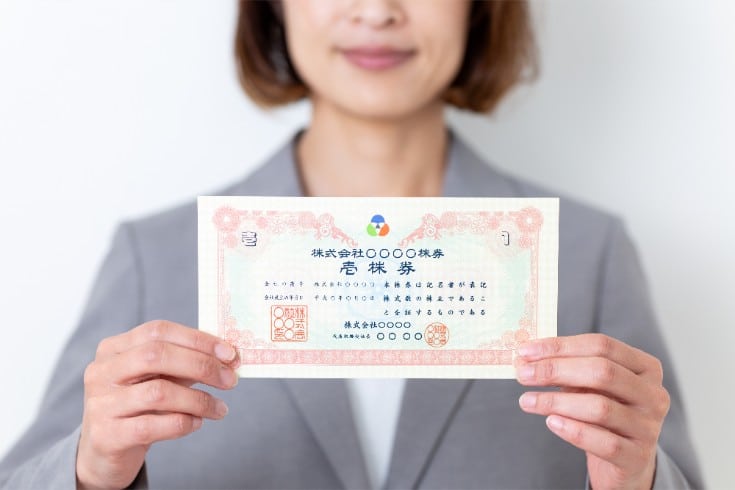Legal Framework for Carriage Transactions in Japanese Commercial Law

In the modern global economy, the Japanese supply chain is a critical element that can determine the success or failure of international business ventures. To effectively leverage this complex logistics network, mere operational knowledge is insufficient; a precise understanding of the legal framework governing key service providers is essential. Among these, the role of the “Freight Forwarder” is central to logistics in Japan, yet their legal status is often misunderstood. This article aims to provide a specialized legal analysis of the role, responsibilities, and rights of Freight Forwarders under Japanese Commercial Law. It clarifies how their legal status differs from that of mere agents or actual carriers. Specifically, we delve into the legal definition of freight forwarding business, the nature of freight forwarding contracts, the strict liability regime, the conditions under which freight forwarders assume the responsibilities of carriers, and powerful legal measures such as the right of retention. Through these analyses, we offer practical guidelines for all companies managing logistics and commercial transactions in Japan.
The Legal Definition of Freight Forwarding Business Under Japanese Law
The Japanese Commercial Code clearly defines the freight forwarding business. According to Article 559, Paragraph 1 of the Japanese Commercial Code, a “freight forwarder” refers to a person who, in their own name, undertakes the business of arranging the transportation of goods. This definition includes two extremely important elements for understanding the legal status of a freight forwarder.
The first element is “in their own name.” This means that the freight forwarder becomes a party to the contract between themselves and the actual carriers, such as shipping companies or shipping lines, distinguishing them from “agents” who directly establish contracts between the consignor (shipper) and the carrier. The freight forwarder concludes the transportation contract as a legal entity bearing its own responsibilities.
The second element is “on account of another.” This indicates that the ultimate economic benefits and risks associated with transportation belong not to the freight forwarder but to the consignor who entrusts them. The freight forwarder acts on behalf of the consignor but concludes contracts in their own name as a legally independent intermediary.
In practice, businesses that fall under this legal definition include freight transport operators registered under the Japanese Freight Forwarding Business Act and port transport businesses.
The most crucial aspect of understanding this definition is the distinction between the freight forwarder and the “carrier.” Article 569 of the Japanese Commercial Code defines a carrier as a person who undertakes the transportation of goods or passengers on land, in lakes and rivers, or in ports as a business, referring to the entity that physically executes the transport. In other words, the freight forwarder arranges the transportation, while the carrier executes it. This distinction is particularly vital when determining the location of responsibilities, as will be discussed later.
Furthermore, a freight forwarder is fundamentally different from a mere intermediary service provider, such as a convenience store offering parcel services. The latter does not bear responsibility for the transportation contract itself, whereas the freight forwarder assumes full contractual responsibility for the transportation arrangements they have made.
To further understand the legal nature of a freight forwarder, it is necessary to consider the concept of a “wholesaler” in Japanese commercial law. A wholesaler is a person who, in their own name and on account of another, engages in the business of selling or purchasing goods. This structure is exactly the same as that of a freight forwarder, and Article 559, Paragraph 2 of the Japanese Commercial Code explicitly states that, unless otherwise provided, the provisions concerning wholesalers apply to freight forwarders. This indicates that freight forwarders are not a completely new legal entity but are positioned as a type of traditional intermediary merchant in Japanese commercial law. This legal personality as a wholesaler is the source of the powerful rights granted to freight forwarders, such as the “right of intervention” and the “right of retention” that will be discussed later.
To clarify these relationships, the following table compares the legal roles of freight forwarders, carriers, and agents.
| Aspect | Freight Forwarder | Carrier | Agent |
| Legal Basis | Article 559 of the Japanese Commercial Code | Article 569 of the Japanese Commercial Code | Article 27 of the Japanese Commercial Code |
| Contractual Actions | In their own name, on account of the consignor | In their own name, on their own account | In the name of the consignor, on account of the consignor |
| Main Obligations | Arranging transportation | Transportation of goods/passengers | Acting as an intermediary/agent for transactions on behalf of the principal |
| Center of Responsibility | Duty of care in arranging transportation | Loss, damage, or delay of transported goods | Fiduciary duty to the principal |
The Nature and Content of Transportation Handling Contracts Under Japanese Law
Transportation handling contracts, concluded with freight forwarders, legally possess the nature of a “mandate contract,” which involves entrusting specific administrative tasks. However, since these are commercial transactions, the special provisions of Japanese Commercial Law take precedence over the general principles of the Japanese Civil Code. Additionally, these contracts are understood to contain elements of a “contract for work,” as they aim to achieve the successful arrangement of transportation.
Under these contracts, freight forwarders bear the “duty of care of a prudent manager” (due diligence). This abstract duty was concretized in Article 560 of the Japanese Commercial Code before its amendment in 2018 (pre-revision). According to this article, freight forwarders could not be exempt from liability unless they proved that they had not neglected their duty of care in all activities related to the receipt, delivery, storage, selection of carriers or other freight forwarders, and other transportation-related activities.
On the other hand, freight forwarders are also granted significant rights. One of these is the right to claim remuneration. Article 561, Paragraph 1 of the pre-revision Commercial Code stipulates that freight forwarders can immediately claim their remuneration upon handing over the cargo to the carrier. This right arises regardless of whether the cargo has reached its final destination, which is a provision advantageous to freight forwarders.
Furthermore, Paragraph 2 of the same article contains an important provision in practice. It states that if the remuneration of the freight forwarder is not individually determined in the transportation handling contract but is set as an inclusive “freight charge” for the total amount, the freight charge is deemed to include the remuneration. In this case, unless there is a special agreement, the freight forwarder cannot claim additional remuneration.
This rule on inclusive freight charges carries more significance than just an accounting practice. In practice, it is common for freight forwarders to present a single fee to customers for the simplification of estimates and to maintain competitiveness. This structure creates an economic incentive for freight forwarders to maximize the difference between the comprehensive freight charge billed to the customer and the actual costs paid to the carrier. As a result, freight forwarders are expected to function as efficient cost managers. On the other hand, this practice subtly shifts the role of the freight forwarder from a mere transparent agent to an independent business operator selling transportation services at a fixed price. This economic reality bridges the legal concept of “intervention rights,” where freight forwarders have the potential to transform into carriers themselves, forming the practical and legal foundation for such a transformation.
The Liability of Carriers Under Japanese Commercial Law
The liability of carriers is strictly defined under Japanese Commercial Law, with the principle of “presumed negligence” at its core. Article 560 of the former Commercial Code stipulated that in the event of loss, damage, or delay of the transported goods causing damage, the carrier cannot be exempt from liability for damages unless they prove that neither they nor their employees were negligent.
The most significant feature of this provision is the shift in the burden of proof. Under the general principles of Japanese Civil Law, the party alleging non-performance of obligations (the consignor) must prove the negligence of the other party (the carrier). However, in the case of carrier liability, this relationship is reversed. The consignor who has suffered damage only needs to prove the occurrence of the damage, not the existence of negligence. Instead, it is the carrier who must actively prove their lack of negligence to be exempt from liability. This is an extremely favorable provision for the consignor and represents a significant legal risk for the carrier.
However, this strict liability is not indefinite. The right to claim damages against the carrier is subject to a short one-year statute of limitations according to Article 566 of the former Commercial Code. This period starts from the day the consignee receives the transported goods, and in the case of total loss, from the day the goods should have been delivered.
Nevertheless, this one-year limitation period is not absolute. Paragraph 3 of the same article excludes the application of this short statute of limitations if the carrier acted with “malice.” “Malice” refers to, for example, cases where the carrier intentionally caused damage or concealed the fact of damage from the consignor despite being aware of it.
Court precedents demonstrate how this principle of liability is applied in practice. For instance, in a case where a passport sent by courier service was lost for an unknown reason, the Tokyo District Court’s decision on April 20, 1989 (Hanrei Jiho No. 1337, p. 129) made a noteworthy judgment. The decision indicated that it was reasonable to presume “gross negligence” on the part of the carrier since the loss occurred under their management and the cause was unknown. The fact that the circumstances of the loss were completely unclear indicated deficiencies in the carrier’s storage and management system, which itself was deemed to constitute gross negligence.
At first glance, this one-year short statute of limitations seems to offer strong protection for the carrier. However, within the Japanese legal system, there is an important legal doctrine that relativizes this protection, known as “claims competition.” This concept allows for the pursuit of both contractual liability (non-performance) and tort liability, which does not arise from contractual relations, for the same damage event. The Supreme Court decision on November 5, 1963, recognized that this doctrine of claims competition applies to carriers, establishing that simple negligence can give rise to tort liability. The statute of limitations for tort-based claims for damages is generally three years from the time the damage and the tortfeasor are known, which is significantly longer than the one-year period for contractual liability. This allows consignors who have exceeded the one-year period to still sue the carrier based on tort. Furthermore, it is common for transportation contracts to include clauses that set a cap on liability for damages, but these liability limitation clauses typically become invalid if the carrier is found to have acted intentionally or with “gross negligence.” As the aforementioned 1989 precedent shows, courts may infer gross negligence from incidents of cargo loss with unknown causes. Therefore, carriers face a complex risk of short-term contractual liability, long-term tort liability, and the potential invalidation of liability limitation clauses.
When a Forwarder Assumes the Role of a Carrier: Exercising the Right of Intervention
A forwarding agent is, in principle, an intermediary who arranges transportation, but under certain conditions, they may become a carrier themselves and assume greater responsibility. This is made possible by the “right of intervention.” Article 565, paragraph 1 of the former Commercial Code of Japan stipulates that, unless otherwise provided for in the forwarding contract, a forwarding agent may carry out the transportation themselves.
When a forwarding agent exercises this right of intervention, their legal status fundamentally changes. They are no longer merely an intermediary but assume the same position as a carrier with all the rights and obligations related to transportation. This means that the scope of their responsibility extends from the limited act of arranging transportation to the entire transportation process, from the receipt to the delivery of the goods.
This change in status can occur even without the forwarding agent’s intention. Article 565, paragraph 2 of the former Commercial Code provides that when a forwarding agent issues a “cargo receipt” at the request of the consignor, they are “deemed” to carry out the transportation themselves. This is known as “presumed intervention,” and the act of issuing a cargo receipt automatically imposes the responsibilities of a carrier on the forwarding agent.
The responsibilities of a carrier are defined in Article 577 of the former Commercial Code, and the principle of presumed negligence applies to the forwarding agent’s responsibilities as well. However, the scope of their responsibility is significantly broader. A carrier is liable for any damage that occurs during the entire process of transportation, from receipt to delivery of the goods, unless they can prove their own lack of negligence.
This “presumed intervention” entails significant legal risks in modern international logistics. A “cargo receipt” is a valuable security that represents the goods themselves under Japanese commercial law. On the other hand, forwarding agents operating as Non-Vessel Operating Common Carriers (NVOCCs) routinely issue their own “House Bill of Lading (HBL)” or “House Air Waybill (HAWB)” as part of their daily operations. The issue that arises here is whether these HBLs or HAWBs correspond to the “cargo receipts” under Japanese commercial law. If the courts affirm this, the forwarding agent could unintentionally assume full responsibility as a carrier for the entire international transport segment. Indeed, the issue of forwarding agents issuing their own transport documents while trying to avoid the responsibilities of a carrier has been pointed out in discussions on legal reform, and there is a growing view that such operators should be held responsible as carriers. This indicates that the documents routinely issued by forwarding agents could fundamentally change their legal risks, which is an extremely important point of caution for operators.
The differences between the responsibilities of a forwarding agent and those of a carrier after exercising the right of intervention are summarized in the table below.
| Aspect of Responsibility | As a Forwarding Agent | As a Carrier (After Intervention) |
| Basis of Responsibility | Breach of duty of care related to intermediary actions | Breach of duty of care related to the entire transportation process |
| Scope of Responsibility | Limited to intermediary actions such as the appointment and supervision of carriers | The entire process from receipt to delivery of the goods |
| Burden of Proof | Proof that there was no negligence in their intermediary actions | Proof that there was no negligence throughout the entire transportation process |
| Applicable Article (Former Commercial Code) | Article 560 | Article 577 |
The Right of Retention for Carriers Under Japanese Commercial Law
Japanese Commercial Law provides carriers with a powerful legal tool to secure their claims: the right of retention. Article 562 of the former Commercial Code of Japan allows carriers to retain the consignor’s goods until payment of specific claims is received.
The scope of the claims secured by this right of retention is limited. Carriers can only exercise this right for the remuneration they should receive in relation to the retained goods, including carriage fees and other expenses advanced on behalf of the consignor. This is known as a “special right of retention” and is narrower in scope than the “commercial right of retention” (Article 521 of the Japanese Commercial Law), which secures claims arising from all commercial transactions between merchants. Therefore, carriers cannot retain current goods for past debts that are not directly related to the retained goods.
However, its effectiveness is extremely strong. Unlike claims that can only be asserted against specific contractual partners, the right of retention is constituted as a “real right” that can be asserted against anyone. A historical case that demonstrates the strength of this right is the so-called “Sandviken Case” (judgment by the Tokyo High Court). In this case, the court ruled that, based on the principle of the indivisibility of the right of retention, a carrier could retain the remainder of the goods until full payment of the charter fee, even if they only possessed a small part of the goods. This powerful legal principle also applies to the right of retention for carriers.
This right of retention is not merely a legal concept; it holds significant strategic value in practice. In the logistics industry, where services are often provided on credit, the right of retention is an essential debt management tool for carriers. Its greatest strength lies in its immediacy. Instead of going through time-consuming and costly litigation to recover unpaid fees, carriers can exercise the right of retention to legally halt the consignor’s supply chain, applying swift and strong pressure for payment. However, this right is predicated on the possession of the goods, and once the goods are delivered, it can no longer be exercised. This fact becomes a decisive bargaining chip in payment negotiations. On the other hand, the limitation of this right to debts related to specific goods serves as an important check to prevent the abuse of such powerful authority. For companies engaged in international business, the existence of this right of retention suggests a significant risk: minor disputes over invoices can potentially lead to serious supply chain disruptions due to the retention of goods within Japan.
Summary
As detailed in this article, Forwarding Agents under Japanese Commercial Law occupy a unique legal status, acting neither as mere agents nor as full carriers, but operating under their own specific regulatory framework. They are subject to a strict ‘presumed negligence liability,’ which entails a heavy risk of being held liable for damages unless they can prove their own lack of fault. Moreover, if they are deemed to have exercised ‘intervention rights’ through actions such as issuing transport documents, their responsibility shifts to that of a carrier, with broader and more significant implications. On the other hand, Forwarding Agents are also granted a powerful right in the form of ‘lien’ to secure unpaid claims, which can represent a potential risk in the supply chain for their clients. Thus, the legal framework surrounding forwarding operations is a field that requires specialized knowledge due to the complex interplay of unique rights and obligations.
Monolith Law Office has provided advice based on extensive practical experience to a diverse range of domestic and international clients on legal issues related to forwarding operations, logistics, and Japanese commercial law in general. Our firm is staffed with professionals, including those qualified as foreign attorneys, who are English speakers capable of bridging Japanese legal systems with international business practices. We are committed to offering comprehensive and strategic legal support to help businesses accurately understand this complex legal environment, effectively manage risks, and lead their operations to success in Japan.
Category: General Corporate





















